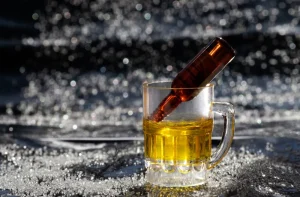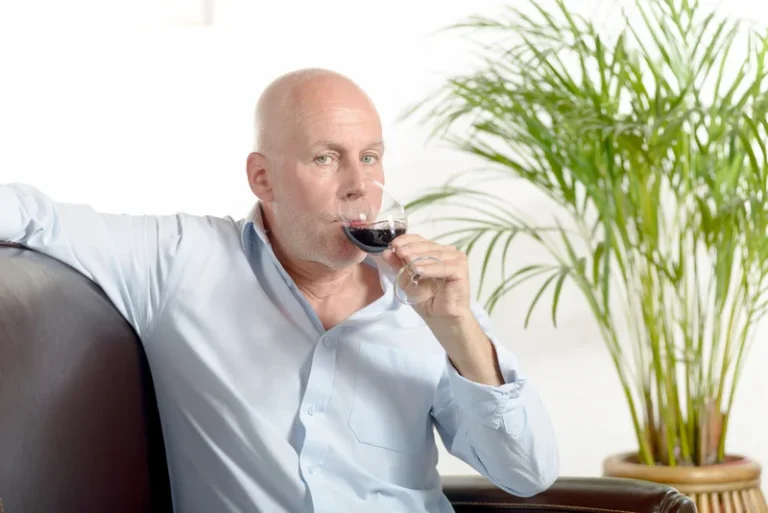
An angry person tends to seek out stimuli that activate feelings of anger. This may explain why they are angry more often and act more aggressively than someone who does not have this personality trait. Studies have estimated that up to 50% of alcohol-dependent males display violent behavior. https://ecosoberhouse.com/article/drug-use-in-sports-risks-you-have-to-know/ Alcoholic rage is characterized by behavior that becomes hostile, or aggressive when under the influence of alcohol. Alcohol can intensify existing emotions, often resulting in an exaggerated display of anger. This has an effect on the life of the person exhibiting this consistent anger.
The Experience Blog
In some cases, you can’t change an angry drunk, and you need to make the decision that’s right for you and other members of the household, especially children. To combat aggressive behavior when drinking, individuals should consciously seek help. When it comes to anger specifically, people may experience a phenomenon called “alcohol myopia” in addition to their already heightened emotions. This scenario involves losing your sense of perception under the influence.
- Alcoholic rage is characterized by behavior that becomes hostile, or aggressive when under the influence of alcohol.
- Research suggests several factors may be involved, including personality, genetics, social considerations, brain chemistry, and brain changes.
- Some folks assume that people showing signs of this syndrome are about to relapse and drink again, but this isn’t always the case.
- You’ll meet millions of fellow Reframers in our 24/7 Forum chat and daily Zoom check-in meetings.
If You Know You’re an Angry Drunk, What Can You Do?
Intoxicated people may feel more outgoing, lonely, joyful — or angry. For example, if you start drinking when you’re lonely and sad, you may find the alcohol makes you feel even more desolate and distressed than you did when you were sober. Alcohol use disorder is a pattern of alcohol use that involves problems controlling your drinking, being preoccupied with alcohol or continuing to use alcohol even when it causes problems.
Alcohol use disorder
- Auto-brewery syndrome is a rare condition that occurs when food ferments in your stomach and produces ethanol, the same alcohol found in alcoholic drinks.
- Also, scheduling personal time to allow you to lower stress may help you to better handle an upcoming stressful or frustrating situation.
- Alcohol affects brain chemistry by altering neurotransmitters, which manage our mood and impulses.
If your loved one is acting along the above lines, you may feel like you need to “walk on egg shells,” watch every move or word as you don’t want to incite an angry exchange. I have heard clients say that at least when their loved one was drinking they knew what to expect. However, some people are more likely than others to be angry when drinking alcohol. Domestic violence is a very dangerous potential result of alcohol abuse. A 2017 study showed that men under the influence of alcohol had higher rates of physical and sexual aggression.

Alcohol and Domestic Violence
These programs organize your treatment session based on your schedule. The goal of outpatient treatment is to provide therapy, education, and support in a flexible environment. You’ll live in safe, substance-free housing and have access to professional medical monitoring. Crystal Raypole has previously worked as a writer and editor for GoodTherapy.

This is because it requires a comprehensive approach addressing both alcohol abuse and anger management techniques to promote their well-being and foster healthier relationships. Another essential aspect in the prevention of alcoholic rage syndrome involves training healthcare providers. Medical professionals should receive education on how to identify and treat individuals dealing with alcohol-related anger issues. By doing so, they can offer personalized support and recommend appropriate interventions, such as cognitive-behavioral therapy or counseling services. Alcoholic Rage Syndrome, also known as alcohol-induced aggression or alcoholic anger, is a distressing condition that plays a role in answering the question, why are alcoholics so mean?

The use of double-immunofluorescent stainings for Ap-2/pHIS3 and Ap-2/c-caspase 3 showed that alcohol treatment inhibited cranial NCC proliferation and increased NCC apoptosis. Alcohol exposure of the dorsal neuroepithelium increased laminin, N-cadherin, and cadherin 6B expressions while Cadherin 7 expression was repressed. In situ hybridization also revealed that ethanol treatment up-regulated cadherin 6B expression but down-regulated slug, Msx1, FoxD3, and BMP4 expressions, thus affecting proliferation and apoptosis. If you have an underlying health condition such as diabetes, you may be more likely to experience auto-brewery syndrome. When your body makes too much alcohol, your blood alcohol levels rise, which can lead to symptoms of traditional intoxication. If you start to act like you’re drunk but you haven’t had alcohol to drink, you may suspect auto-brewery syndrome.
- The goal of outpatient treatment is to provide therapy, education, and support in a flexible environment.
- It’s not always easy to open up about alcohol use and recovery, especially to people who don’t have any experience with it, but it’s a crucial part of the process.
- In most cases, though, getting sober is a lot more complex than simply giving up alcohol.
- A big part of recovery and your new sober life is making your physical health a priority.
- We will also identify some ways to manage alcohol-related rage once it occurs.
- “Trait anger” refers to a person’s general tendency to experience chronic anger over time.
Most programs help set up your aftercare once you complete the inpatient portion of your treatment. Anger management therapy is one of the best options available for helping you understand your emotions and find effective ways to cope with them. Lack of impulse control can make someone fly into a fit of rage or become aggressive rapidly. Alcohol makes it more difficult to control anger and other emotions. That’s because it reduces an individual’s self-control and internal inhibition. It’s best to have some kind of extra support during recovery, whether that’s a 12-step program or a regular appointment with a therapist who specializes in addiction counseling.


